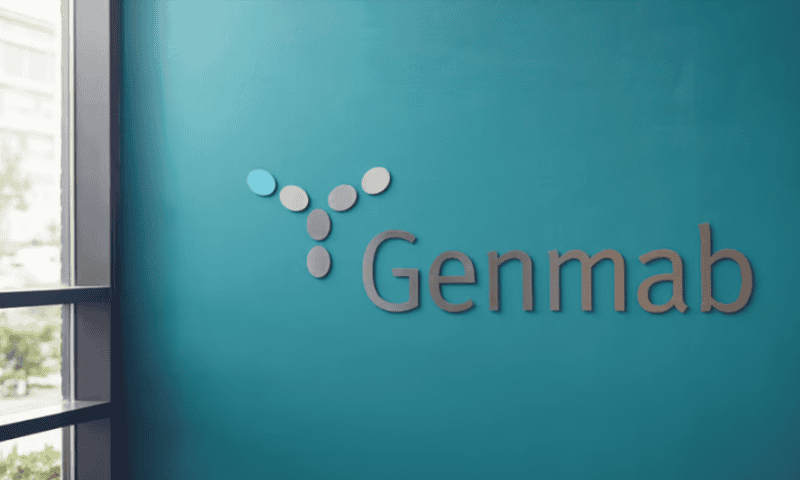Genmab is mounting a $1.8 billion challenge against its close collaborator AbbVie. The Danish biotech is using the money to buy ProfoundBio and gain control of a midphase antibody-drug conjugate (ADC) that could compete against AbbVie’s Elahere.
ProfoundBio’s lead drug candidate is rinatabart sesutecan (Rina-S), an ADC designed to deliver topoisomerase-1 (Topo1) inhibitor to cells that express folate receptor alpha (FRα). FRα is overexpressed in ovarian cancer and other solid tumors, leading companies including Bio-Thera Solutions, Bristol Myers Squibb, Eisai, ImmunoGen and Sutro Biopharma to aim ADCs at the receptor.
ImmunoGen received accelerated approval for its FRα drug, Elahere, in 2022 and went on to link it to improved overall survival. AbbVie responded by inking a $10.1 billion deal to buy ImmunoGen. The biotech reported quarterly U.S. Elahere sales of $105.2 million shortly before AbbVie made its move.
Yet Genmab sees an opportunity to come from behind and establish Rina-S as a major drug, reflecting its belief that the molecule is a potential best-in-class asset. The Danish biotech is gambling $1.8 billion on that belief.
Rina-S consists of a monoclonal antibody that selectively binds FRα, a novel cleavable hydrophilic linker and a Topo1 payload, exatecan. Preclinical tests found the hydrophilic linker gives better physicochemical properties and pharmacokinetics than conventional linkers and showed Rina-S kills cancer cells in mouse models of multiple tumor types with high, moderate and low FRα expression.
ProfoundBio is testing Rina-S in the second part of a phase 1/2 clinical trial in ovarian cancer and other FRα-expressing tumors. Genmab sees a future for the ADC in a range of FRα-expressing solid tumors.
Buying ProfoundBio, which is headquartered in Seattle and has an R&D center in Suzhou, China, will also give Genmab control of a clutch of other candidates. ProfoundBio is developing ADCs that target CD70 and PTK7 plus a bispecific ADC that hits EGFR and cMET. Genmab contends the combination of its own antibody skills and ProfoundBio’s platforms can potentially spawn additional drug candidates.
In the past, Genmab sought out acquisitions that gave it tools and components to boost its research and discovery engine, not drug candidates, but the biotech has been open about a change in its strategy. Anthony Pagano, Genmab’s chief financial officer, discussed the reasoning for the shift on an earnings call in February.
“Over the last couple of years, we’ve invested quite a bit to build out our mid- to late-stage development capabilities as well as our commercialization capability,” Pagano said at the time. “So, we’re looking to leverage those investments as we move forward. We’re therefore pursuing potential [business development] and M&A opportunities that align with our core focus areas.”
Genmab CEO Jan van de Winkel, Ph.D., used the same call in February to float the prospect of the company accelerating its expansion into immune-mediated and inflammatory diseases by acquiring a late-stage development or even commercial-stage candidate. In the end, Genmab stayed in its cancer stronghold for its first big pipeline deal.

